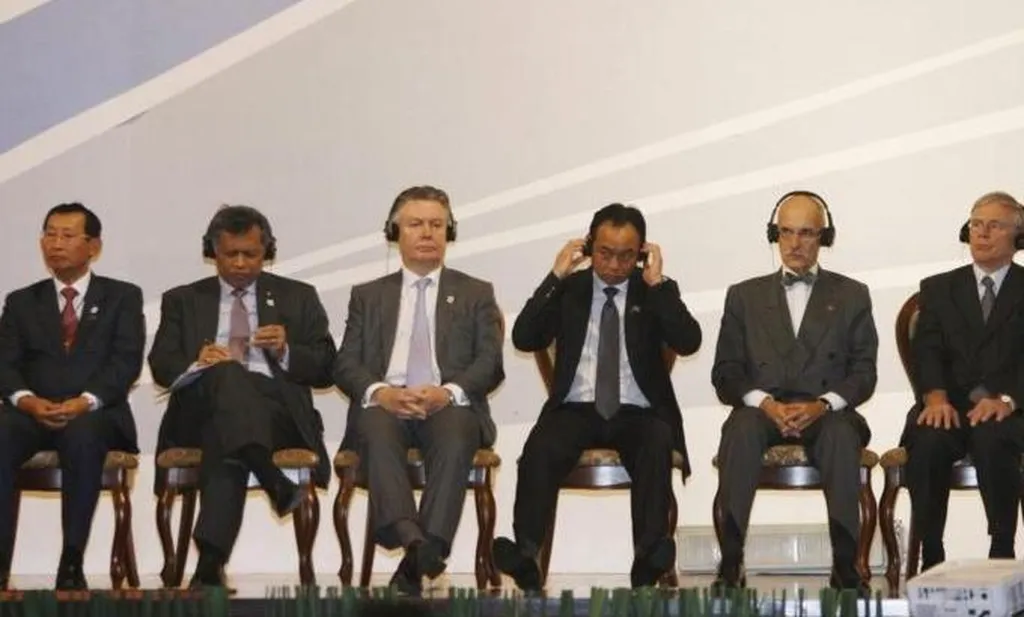In a move that could significantly bolster Indonesia’s deep-sea exploration capabilities, two lecturers from IPB University’s Department of Marine Science and Technology recently participated in a technical training program on deep-sea exploration in China. Prof Agus S. Atmadipoera and Dr Meutia S. Ismet attended the program as part of preparations for the upcoming China–Indonesia Deep-Sea Habitat Expedition, a joint initiative stemming from a Memorandum of Understanding (MoU) between IPB University and China’s First Institute of Oceanography (FIO).
This collaboration, focusing on marine research, education, and the exchange of researchers and students, is set to culminate in an expedition around the Krakatau-Sunda Strait, scheduled for October 2025. “This training is expected to serve as an important foundation for planning the deep-sea habitat and marine life exploration expedition,” said Prof Agus, highlighting the program’s strategic importance.
The training, opened by FIO Vice Director Prof Wang Zongling, Shanghai Maritime University Vice President Prof Yan Wei, and CRRC-SMD Shanghai Vice General Manager Dr Tian Hao, provided participants with hands-on experience in cutting-edge technologies and methodologies. CRRC-SMD Shanghai, a global leader in underwater drone technology (Remotely Operated Vehicle–ROV), played a pivotal role in the program.
During the training, participants received in-depth instruction on ROV technology and operations, deep-sea habitat exploration techniques, and methods for analyzing deep-sea organism samples. “We were given the opportunity to operate a full ROV simulator with technical control panels under the supervision of professional ROV pilot instructors,” Prof Agus shared, underscoring the practical aspects of the program.
The training also included visits to CRRC-SMD’s ROV production facilities in Shanghai and the Lan Hai 101 Oceanographic Fisheries Research Vessel operating in Qingdao. At the FIO headquarters, participants attended technical lectures on research methodologies for deep-sea biological ecology. Prof Xuelei Zhang, one of the speakers, discussed the results of a marine expedition in the hydrothermal regions of the central and western Indian Ocean, providing valuable insights into deep-sea exploration.
The collaboration extends beyond IPB University, with researchers from the Deep-Sea Research Center of the National Research and Innovation Agency (BRIN) in Jakarta and lecturers from the Faculty of Fisheries and Marine Sciences at Jenderal Soedirman University in Purwokerto also participating in the training.
This initiative could shape future developments in Indonesia’s maritime sector by enhancing local expertise in deep-sea exploration and fostering international collaboration. The exchange of knowledge and technology transfer from China’s advanced marine research institutions could accelerate Indonesia’s capabilities in deep-sea habitat exploration and marine life research.
Moreover, the expedition around the Krakatau-Sunda Strait could yield significant scientific discoveries, contributing to the global understanding of deep-sea ecosystems. The involvement of multiple Indonesian institutions suggests a coordinated effort to strengthen the country’s maritime research capabilities, potentially leading to more collaborative projects in the future.
As Indonesia continues to invest in its maritime potential, this training program and the upcoming expedition could serve as a catalyst for further advancements in deep-sea exploration, ultimately positioning Indonesia as a key player in the global marine research community. The collaboration with Chinese institutions not only enhances technical skills but also fosters diplomatic ties, paving the way for more international partnerships in the maritime sector.

